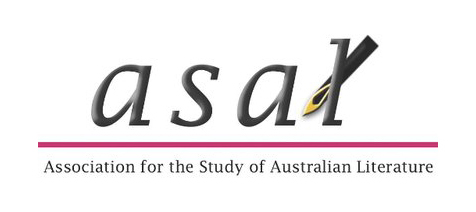06 Mar Call For Papers: Creativecritical Writing Now A Special Issue of TEXT Journal of Writing and Writing Courses
This Special Issue aims to explore forms of, and approaches to, creativecritical writing: writing which performs scholarly and creative functions simultaneously. Such blended approaches are no longer new—indeed, they are tracking distinct paths and uses in various contexts inside academia and beyond. As such, this Special Issue will take stock of the current nexus between the creative and the critical, as well as speculate on future conceptions of hybrid creative writing /scholarship.
The creativecritical mode has a long lineage across fictocritical, autotheoretical and ethnographic writing, as well as creative nonfiction and the essay form. Recently, creativecritical writing has gained popular currency, as evidenced by the work of Rebecca Solnit, Anne Carson, and Maggie Nelson. It is also attracting critical momentum, most noticeably at doctoral level, where, as Kylie Cardell and Kate Douglas note, ‘Many postgraduates [in Life Writing] are engaging in projects where the creative and critical/exegetical are an integrated text’ (207–208). In this Special Issue of TEXT, we invite articles (of roughly 6-8,000 words) that engage with the functions, processes, poetics and ethics of creativecritical writing in its many forms (creative nonfiction, fiction, academic writing, poetry/poetics, testimony and more). These engagements should constellate, in order to ask: Where are we now, and what is next for creativecritical writing? We hope to encourage a compiling of the essayistic, the fictocritical, life writing, the seamless, and more, to assess how the exegesis—and creative writing as research more broadly—might be conceived through a creativecritical lens.
Potential contributors might like to consider:
- What creativecritical writing approaches do within research? (And, what have they done, where are we now, and where we are going?)
- Creativecritical possibilities for the exegesis, and questions regarding what counts as scholarly output (E.g., what creative writing might do to shift the lexical possibilities of scholarly work; how it can work within institutions). Articulating the role of the exegesis, creative exegetical forms, teaching/doing exegetical writing.
- Creativecritical approaches as indicative/supportive of new vistas in representation, such as embodied thinking or non-dualistic approaches. (What kind of work is necessary at this juncture? How do thought/body/lived experience interact with scholarly forms? How can life writing operate as scholarship?)
- The critical power in creative work, and the inherent criticality of creative expression. (What is creative and what is critical? How can the ‘ancient quarrel’ (Brien and Webb 2012) between poetry and philosophy be re-visited? Is creative work possibly critical work?)
- The popular turn towards the creativecritical
- The difference, in creative writing scholarship, between explaining the work and the work being research
- The lineage of creativecritical forms: fictocriticism, art writing, autoethnography, essay
- The ethics of creativecritical writing
- Potential forms and approaches to writing that makes and considers/reflects/thinks
- Hybridity in academic writing
- The essay and essayism in scholarly contexts; Braided writing and blended forms
How to submit your expression of interest:
Please submit a 200-word Expression of Interest by email to Stefanie Markidis and Daniel Juckes with ‘Creativecritical Writing Now’ as the subject line. In your EOI please outline how your paper or work(s) explore(s) aspects of the creativecritical mode. Please also include the following information: your full name, institutional affiliation (if any), email address, title of paper/work, brief biography (50–100 words), and 3 to 5 keywords (at least 2 of which should clearly relate to the issue’s title). Deadline for EOIs: 14 April 2023. Deadline for finished works: 30 June 2023.
Enquiries: Daniel Juckes ([email protected]) or Stefanie Markidis ([email protected])


